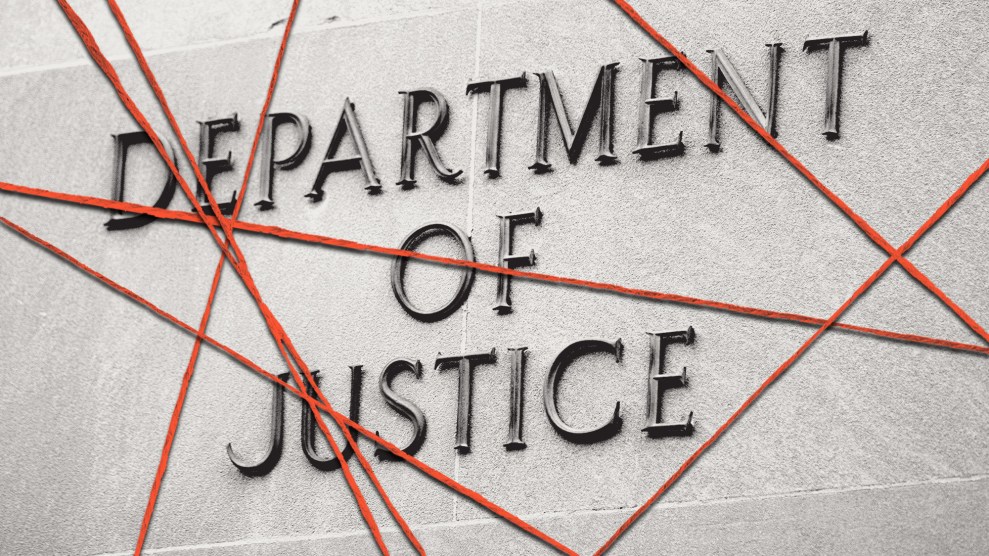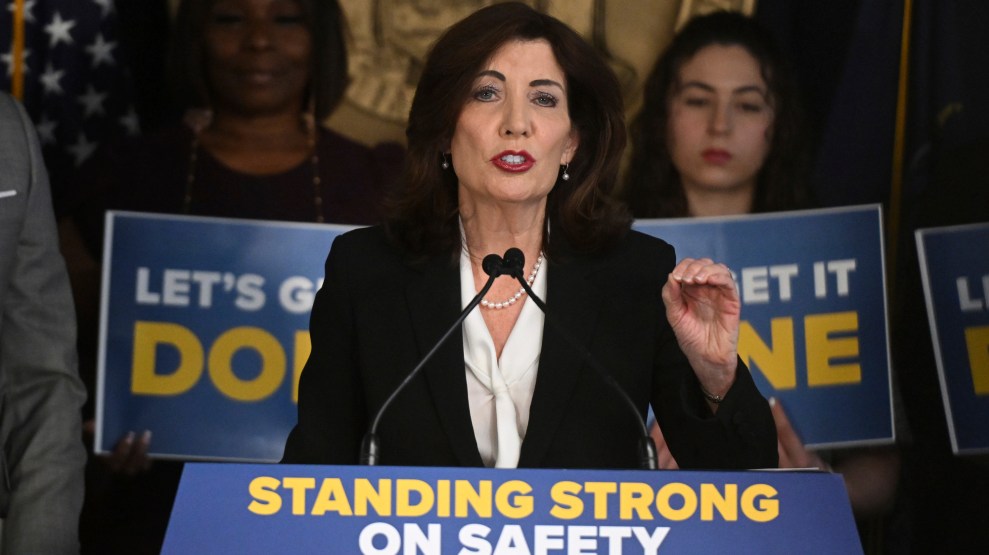In the wake of the House of Representatives’ passage of a bill last week that grants the White House wide latitude to spy on American citizens, and that effectively forces courts to throw out lawsuits against lawbreaking telecommunications companies, Sen. Russell Feingold, D-Wisc., predicted today that the Senate would likely follow suit, despite strong protests from civil liberties groups and a majority of Democratic party members.
“I’m very worried we’re not going to be able to prevail,” Feingold said.
Feingold was the featured guest at a New America Foundation event where he discussed systemic gaps in the country’s collection of foreign intelligence. But during a question and answer session, he fielded several questions about the controversial wiretapping law.
The Wisconsin Democrat voiced considerable frustration with members of his own party, who, he says, have enabled the sweeping new legislation. “Sen. Dodd and I and Sen. Leahy are going to do everything we can to stop this mistake,” Feingold noted, referring to fellow opponents of the bill. “But I’m extremely concerned that not only virtually every Republican… but far too many Democrats will vote the wrong way.”
“We met with Sen. Reid on friday morning,” said Feingold, speaking of himself and Sen. Chris Dodd, D-Conn., and we indicated our desire that this thing not just be jammed through, we’ll be requiring key procedural votes and we’ll also be taking some time on the floor this week to indicate the problems with this legislation.”
This won’t be the first time the duo have tried to stall the enactment of broad surveillance powers by using procedural tactics. Last February, amid the uproar over the possibility that the government would retroactively immunize telecommunications companies who participated in the Bush administration’s warrantless wiretapping program, Dodd spearheaded a filibuster of a similar set of FISA Amendments—a move which ultimately prompted Senate Majority leader Harry Reid, D-Nev., to pull the bill from the floor.
Progressive activists and civil libertarians hailed the filibuster, and the Democratic party’s greater decision not to cave in to White House demands on a national security issue. Nonetheless, several senior Democrats spent the intervening months trying to accommodate the Republicans. And despite containing less than a handful of narrow improvements over the February amendments, the new legislation has much wider support among Democratic leaders. Many of them claim the bill represents a worthy compromise.
“That’s a farce and it’s political cover,” Feingold said, “Anybody who claims this is an okay bill, I really question if they’ve even read it. ”
“Democrats enabled [this],” Feingold went on. “Some of the rank and file Democrats in the Senate who were elected on this reform platform unfortunately voted with Kit Bond who’s just giggling he’s so happy with what he got. We caved in.”
Sen. Kit Bond, R-Mo., is the ranking member of the Senate Select Committee on Intelligence, and has been the Bush administration’s chief congressional point man in its attempt to secure both retroactive immunity for telephone companies and much wider authority to conduct surveillance on both foreign and domestic targets.
Feingold also described critics’ chief concern with the provision of immunity—specifically that it will mean the eventual dismissal of a number of lawsuits that might otherwise have shed some light on the president’s legally dubious Terrorist Surveillance Program. “It doesn’t simply have the impact of potentially allowing telephone companies to break the law,” Feingold said. “It may well prevent us from getting to the core issue, that I’ve challenged since December 2005, which is the president ran an illegal program I think that was essentially an impeachable offense.”
Immunity, though, may ultimately constitute a distraction from an even larger spectacle. “Frankly the tremendous and legitimate focus on the immunity has covered up and sat on top of this issue,” Feingold said. “I think the big story is ultimately not going to be that the telephone companies got immunity… it’s that our personal conversations are now in a giant database somewhere over which we have no control.”
Holding up his BlackBerry, Feingold warned, “Every time you email my daughter or text message her in England, anybody contacts their son or daughter in Iraq, anybody has kids [spending] junior year abroad, anybody that has a business associate anywhere around the world, all of that is now sucked up into a database over which there is essentially no control for the first time in American history.” All of this has happened to you, and your communications, in a way that you never would have thought was possible in this country…. we’re going to fall over on this.”
The Senate will most likely take up FISA later this week, and one source of disappointment for activists and civil libertarians alike has been presumptive Democratic presidential nominee Barack Obama’s position on the issue.
“I don’t know for sure what Sen. Obama’s going to do,” Feingold said.
In October, the Illinois Senator promised to support a filibuster of any bill that grants amnesty to telecommunications providers. In a statement last week, though, Obama indicated he would support the House bill.
















